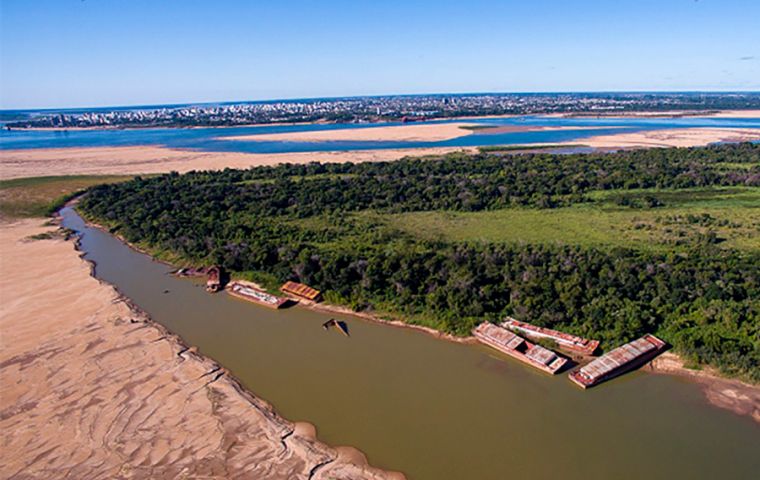
BUENOS AIRES, May 22 (NNN-MERCOPRESS) — The Argentine government of President Alberto Fernández announced it was extending the declaration of emergency for another 180 days in the Paraná River area as water levels remained at historically low levels.
Argentina declared a water emergency more than a year ago, on July 26, 2021. Poor rainfalls have led to the river’s lowest water flow in the last 78 years, due to which authorities found it necessary to issue Decree 261/2022 extending the water emergency in the Paraná River basin region, which includes the provinces of Formosa, Chaco, Corrientes, Santa Fe, Entre Ríos, Misiones and Buenos Aires, according to the document released on the Official Gazette.
The purpose of the measure is to ensure the civil protection of the affected areas and take action to mitigate the ensuing crisis.
The Paraná River is of utmost importance as it is the main gateway for Argentina’s grain and by-product exports. Populations also rely on this river for their drinking water and sewage services.
“Although the levels of the low water levels have been attenuated, they continue to affect drinking water supply, navigation and port operations, hydroelectric power generation, fuel supply, and economic activities related to the exploitation of the basin,” the decree highlighted.
“Negative conditions” are still forecast for these areas, where the problems caused by the “persistent drought” and “deficient weather conditions” are expected to persist. In this scenario, the Cabinet of Ministers has been instructed to carry out the necessary “budgetary restructuring” to address the crisis.
The document also urges the provinces of the basin to adopt a “special provisional tariff regime” for electricity, drinking water, and urban transport services.
This is the most important water drop in the last 78 years and also affects other rivers in the region, such as the Paraguay and the Iguazú. — NNN-MERCOPRESS
